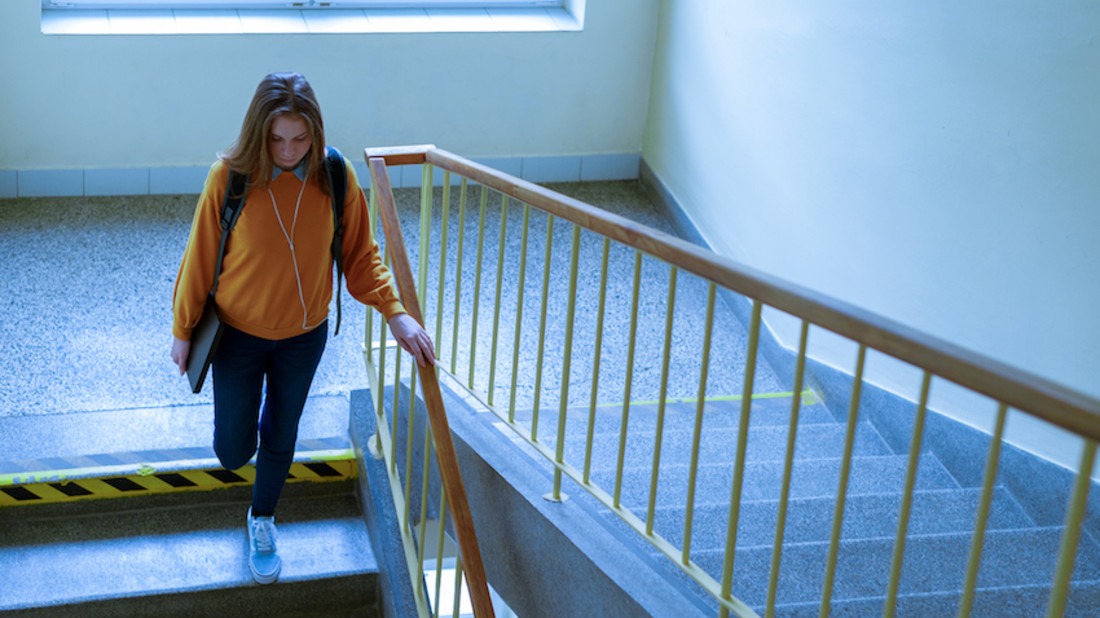
Sleep is one of the most important factors in our health, and sadly one of the most underappreciated. It’s easy to put off sleep in order to simply enjoy our lives, to get more time for our hobbies and our loved ones. But it’s also easy to waste sleep by ruminating all night or working later than we should be. This is especially true for college students, who spend a lot of time up late partying, worrying, and cramming for upcoming exams.
According to the National Sleep Foundation, around 60% of college students experience poor sleeping quality. And at least 70% say they get less than eight hours of sleep a day. In other words, you’re actually in the minority if you get a good night’s sleep on the regular. As hopeless as this sounds, many people actually just accept it without doing anything about it. So stay tuned to see how your college kid can turn things around.
What causes most sleep disturbances?
Honestly, everything under the sun can cause a messed-up sleeping pattern, which is the frustrating part. The simplest form of sleep deprivation is down to poor time management, which can go from staying up too late to cram, to getting up crazy early for classes. The latter is out of the student’s hands, of course, but the former is fixable. Insomnia and hypersomnia — two sides of the same coin — are common with college students, and are often caused by the stress of the courses, and feeling overwhelmed with societal expectations.
There are also more serious forms of sleep disturbance that can be down to neurological causes, sadly these often don’t seem to have a cause other than chemical imbalance and genetic disposition. Certain foods and activities too close to sleep time can also interfere, such as energy drinks, partying, sports, and candy. So knowing when to just let the day fade with a cup of tea, a good book, and a comfy pillow, will help more than they think it will.
What are the effects?
Whether it’s a diagnosed sleep disorder, or a generally disrupted sleep routine, there are many signs and symptoms to look out for, most of which overlap. Brain fog is a big one, and who among us hasn’t experienced a foggy brain after a late night? It takes you a while to react to conversations, simple daily problem-solving becomes a harder puzzle, and you catch yourself staring at the wall while doing tasks.
Poor memory retention and concentration go hand in hand with brain fog, which contradicts the entire point of studying in the first place. You study too late at night, or cram during the day without breaks, leading to poor sleep, leading to the inability to remember what you studied so hard.
A tired student, to many teachers, can also appear as a student who just doesn’t care, so being bright and energetic will help their support in the long run, too. These are the main effects that affect college performance, but the list of personal effects are practically endless.
Sleep deprivation can cause mood swings, depression, poor reflexes, impaired judgment, low attention span, sleeping at inappropriate hours. And if your personal life suffers, your academic life suffers, and if your academic life suffers … it’s a vicious cycle.
Here's the science part.
Because sleep helps our brain cells communicate with one another, sleep deprivation leads to these signals being out of whack. Sleep also regulates cortisol levels, so poor sleep usually means higher cortisol, which in turn means higher stress levels, and a dysregulation between estrogen and progesterone, leading to, yep, brain fog.
Low memory retention is even more complicated. The hippocampus is the memory powerhouse of the brain, both in retaining old memories and making new ones. When you're sleep-deprived, your brain has reduced CA1 neurons, and an increase of cofilin in the hippocampus. These chemicals are responsible for disrupting the pathways between NREM and REM sleep. Worryingly, this also affects the likelihood of creating false memories, never mind failing to create any at all. So when you lack sleep, you’re actually rewiring your brain. It can be reversed with treatment, but there are also risk factors for chronic problems later on in life.
What should we do?
Regardless of what the disturbance is, the main treatment is getting a structured sleep. Not too little, and not too much. Now this is way easier said than done, as if it wasn’t then your kid wouldn’t be here in the first place. But it all comes down to reshuffling, routines, and accepting that any current regimens aren’t working.
Your kid’s doctor may feel they need to prescribe a sleeping drug such as melatonin, or other hormone replacements, depending on the condition. If your kid's lack of sleep is down to anxiety, they may also be recommended cognitive behavioral therapy, talking therapy, and SSRIs.

All of this sounds kind of scary, but chances are the average college student actually just needs to set themselves a healthier schedule, with no bright screens in bed, no sugar after 9 p.m., no partying the night before an exam, and comforting sleeping aids.
The biggest thing to take away from this article is to not accept defeat; poor sleep isn’t just a way of life, it can be fixed, and you’ll be happier in the long run for it. So make sure your kid makes a change, and their academic performance, mood, social life, health, and general well-being will thank them for it for years to come.







